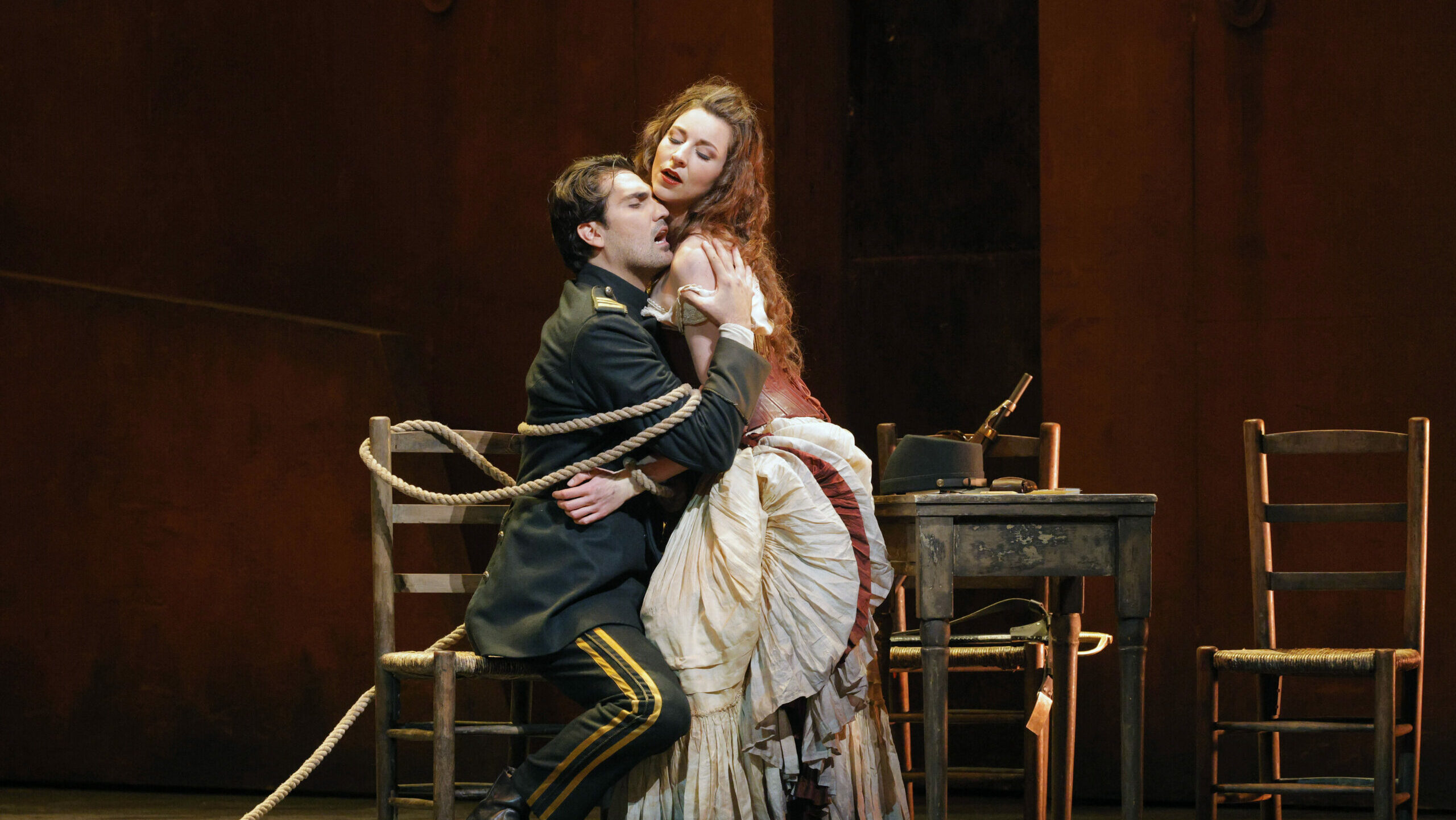
As Barry Tucker explained in his opening remarks, the economic climate and lingering effects of the pandemic have taken their toll on arts fundraising, and the foundation lacked the means to award grants or assemble its customary cavalcade of stars. Instead, we were treated to a more intimate affair in Carnegie Hall’s Stern Auditorium consisting largely of past Tucker Award-winners and grantees accompanied by Bryan Wagorn and Howard Watkins. If anything, this reduced format served to underscore the foundation’s outsized influence on the leading early and mid-career singers who currently dominate the roster at The Metropolitan Opera.
The night opened with a 1951 Richard Tucker recording of “Sound An Alarm” from Handel’s Judas Maccabaeus—a pointed choice given the recent eruption of hostilities in Israel and Gaza, which aimed to evoke the tenor’s lifelong support of Israel and perhaps to galvanize the audience in the midst of these troubling times. Combined with the revelation of the foundation’s financial troubles and the now-customary announcement of cancellations (Angel Blue, Matthew Polenzani, and Christian Van Horn were this year’s no-shows), the selection ensured the concert got off to a rather gloomy start.
Fortunately, baritone Sean Michael Plumb bounded in from stage right to lift the evening’s proceedings with a sparkling rendition of “Largo al factotum” from Rossini’s Il barbiere di Siviglia. Plumb gave an affable account of the titular barber with a bright, appealing top register, the ease of which would give any Almaviva a run for his money. The quality of his tone and his innate charm lend themselves well to the buffo repertoire, though he is still finding his way towards a more easeful expression of the text in the patter sections. Howard Watkins contributed the necessary Rossinian elegance and fizz in equal measure.
Angela Meade, whose appearances at the Tucker Gala normally augur bel canto pyrotechnics, opted for a Verismo favorite: “Ebben? Ne andrò lontana” from La Wally. Meade’s plush, plummy timbre is remarkably consistent across her register, and her instrument retains its power through the passaggio. Though it was thrilling to hear her launch into the aria at full force, her approach left little room for the voice to grow as Catalani’s melodic line ascended to its climax, flattening her overall interpretation. The piece’s shifting moods of doubt and resolve and evocations of Alpine snowfall could be found, however, in Bryan Wagorn’s delicate accompaniment.
Soloman Howard was a last-minute, but very welcome addition to the roster with his selection of Fiesco’s aria from the prologue of Simon Boccanegra. Howard’s expansive, deft phrasing effectively established the piece’s roiling, Romantic turmoil, while his full-bodied bass managed to capture Fiesco’s old age and gravity without resorting to hoarseness. Slumping his shoulders and moving haltingly about the stage, he fully embodied the grieving father. His pleas to the spirit of his dead child to pray for him were deeply felt and moving.
Fresh off her Metropolitan Opera stage debut as Oscar in this season’s revival of Un ballo in Maschera, soprano Liv Redpath showed off her coloratura chops not in the originally programmed selection from Lucia di Lammermoor but with Ophélie’s Mad Scene from Thomas’s Hamlet. Her soprano took on a porcelain-like quality as she blended clarion acuti with melting, sustained legato phrasing that underscored the otherworldly aspects of the character’s insanity. The final cadenza in the waltz section was a bit harried and labored amidst the punishing upward leaps, but she regained accuracy and control by the end of the ballade. She gestured broadly throughout, adding a twitch here and there for dramatic effect, though I found myself wondering if more moments of stillness would not have proved more effective in conveying the piece’s eerie tonal shifts.
Tenor Ben Bliss sang “Ella mi fu rapita…Parmi veder le lagrime” from Rigoletto. I have admired his appearances in Mozart roles at the Met and at Santa Fe, where he brought elegance, purity of tone, and intelligent stylistic choices to those classical melodic lines. His chosen repertoire here, however, did not put all those qualities on display; his tenor remained as sweet and nimble as ever, but it lacked bite in the recitativo and heft in the aria. His rendition was earnest and cautious, never quite accessing the passion needed to sell either the Duke’s sincerity or lechery.
Federica Lombardi treated the audience to a preview of her take on Donizetti’s Anna Bolena prior to her role debut at the Deutsche Oper Berlin in December. Looking every part the queen in blue silk, her luscious tone transported us into Anna’s dreams of former innocence and love in “Al dolce guidami.” During “Piangete voi,” she would let her lyric soprano rip through the hall before pulling it back to a gentle float, bringing us deep into Anna’s plight as she attempts to escape her predicament through her memories of better days. While her trills were not the cleanest in the brief snippet of “Coppia iniqua” that followed, her voice’s silvery warmth and dignity she leant to the heroine’s suffering compensated for the lack of coloratura showboating.
Baritone Quinn Kelsey followed with “Pietà, rispetto, amore” from Verdi’s Macbeth. He brought a Lieder singer’s intelligence and attention to text to this rendition, without losing sight of the requisite dramatic heft truly great Verdi singing requires. Kelsey has the enviable ability to make each phrase feel like an organic moment of emotional discovery, giving the impression that we are not so much listening to a man bewail the emptiness of his life but coming to that same realization alongside him.
Stephen Costello’s take on “Deserto in terra” from Donizetti’s Don Sebastiano was the opposite case. His tenor continues to develop in satisfactory ways, gaining power and genuine brilliance and squillo at the top of his register. His artistry, however, continues to lag behind his overall vocal ability. There was little attempt at shaping Donizetti’s unspooling lines into the convincing expression of grief and hopelessness that the aria is meant to convey. Despite the nicely placed money notes and solid technique, the performance was overall unsatisfactory and frankly boring.
Redpath and Plumb performed the first duet of the evening with “Pronta io son” from Don Pasquale. They were a charming pair. Redpath’s light soprano made for an unusually angelic Norina, and there was little distinction made between the voices of the plotting widow and the semplicetta convent girl she practices being. Plumb’s comic instincts were more developed here than his opening aria and his attention to the text was more acute.
Coming out of rehearsals for Florencia en el Amazonas, Ailyn Perez turned her attention to another butterfly-centric opera with “Un bel dì vedremo,” which as the only Puccini selection in a night dominated by Verdi and Donizetti (and lacking in mezzos, German, and repertoire from before 1816, I should say). Her Cio-Cio-San was a woman desperately clinging onto hope and maintaining a façade of strength rather than one who is simply blinded by love and her own willful ignorance. Even if her Butterfly was steelier than most, her soprano was silky and supple. At points, she plunged deep into her chest voice, which added to the overall drama of her interpretation, even if it seemed like the choice would throw her off kilter. It was an exciting performance of real vocal glamour and one of the only true Diva moments of the evening.
Lombardi and Bliss paired up for “Parigi, o cara” from La traviata. Alfredo proved a better fit than the Duke for Bliss, but the rather frantic tempo gave them little space for their voices to gel in a satisfactory way or for any chemistry to form beyond the standard piano recital grappling and cuddling. Kelsey and Meade brought ample heat to their impassioned rendition “Mira di acerbe lagrime,” from Il Trovatore, which gave Meade ample opportunity to show off the beauty of her chest voice and convinced me that I should run to see Ballo for the chance to see Kelsey before he leaves New York for the rest of the season.
The program concluded with “Au fond du temple saint” from Bizet’s Les pêcheurs de perles featuring Plumb and Costello, who stepped in for an indisposed Polenzani. The duet gave Plumb the chance to display the moral lyrical, expansive qualities of his baritone after the previous buffo selections, providing a more rounded look at the artist he is becoming. Costello’s pitch was off at points, which I’ll attribute to the limited time he had to prepare, but, when together, their voices formed a lovely blend.
Among the highlights of the encores were Lombardi’s flirtatious take on Zarzuela classic “Me llaman la primorosa,” Kelsey’s suave “If I Should Ever Leave You,” and Perez’s ravishing, floating high notes during “Estrelita,” a song by Mexican composer Manuel M. Ponce.
Richard Tucker provided the final word in a recording of “You’ll Never Walk Alone,” an effort on the gala organizer’s part to reassure its audience that they will weather this storm and return in full force soon. My first experience was of professional, live opera was the 2014 Tucker Gala. Talents nurtured by the Tucker Foundation have shaped my love for this art form. And though the number of empty seats and balding heads I saw in the hall Sunday night tell me otherwise, I sincerely hope their optimism is proven true.
Photos: Dario Acosta


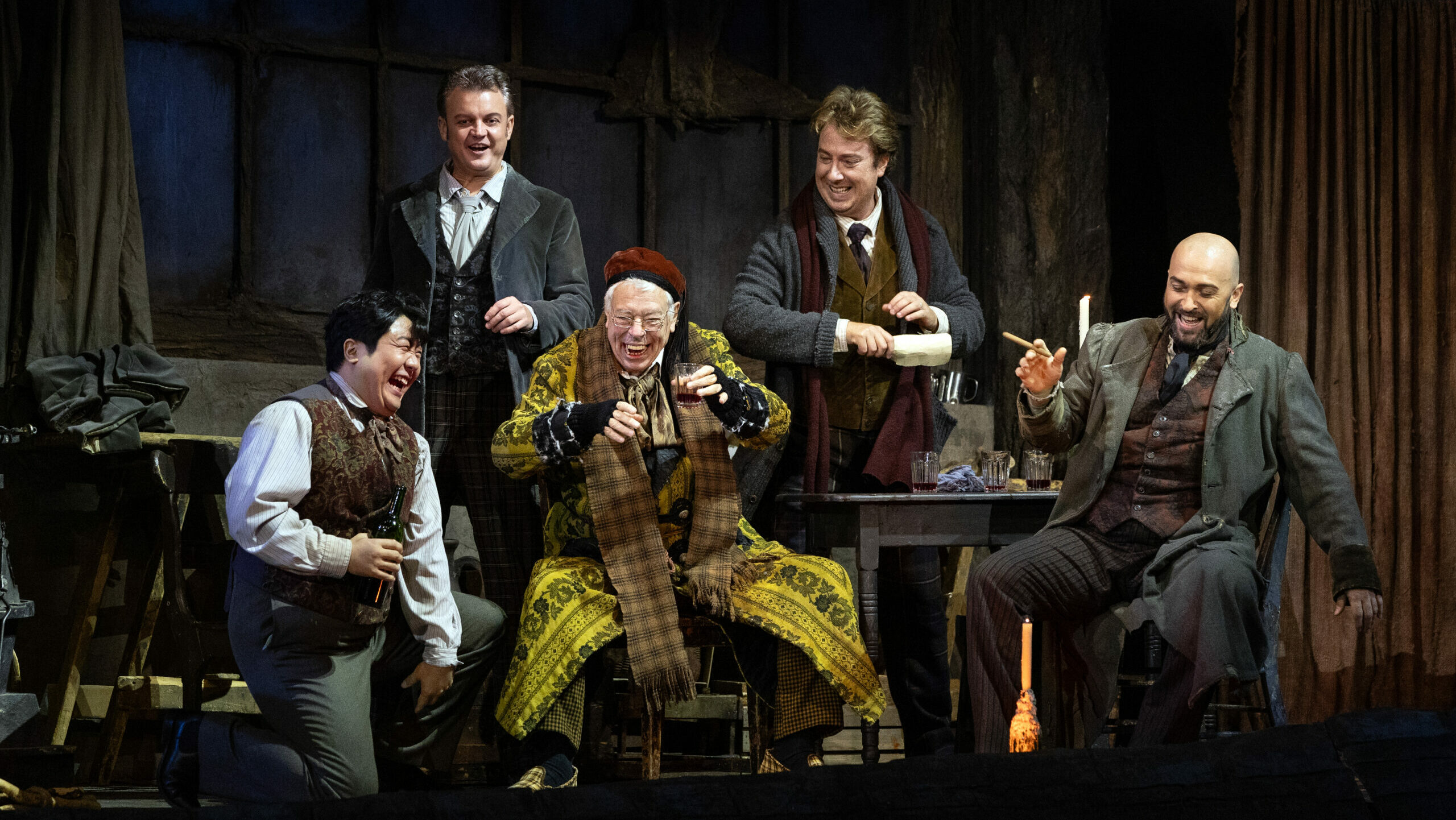
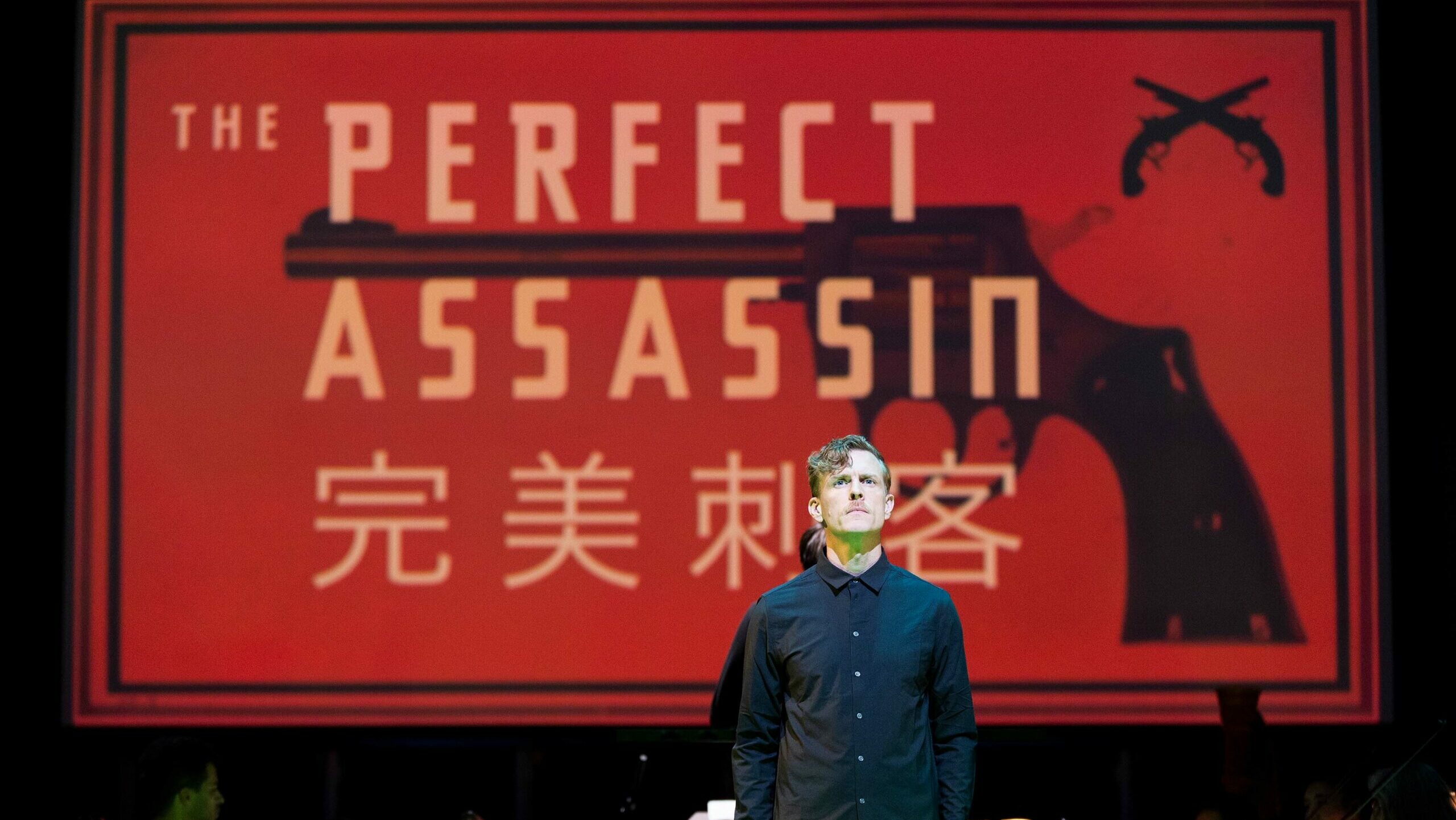
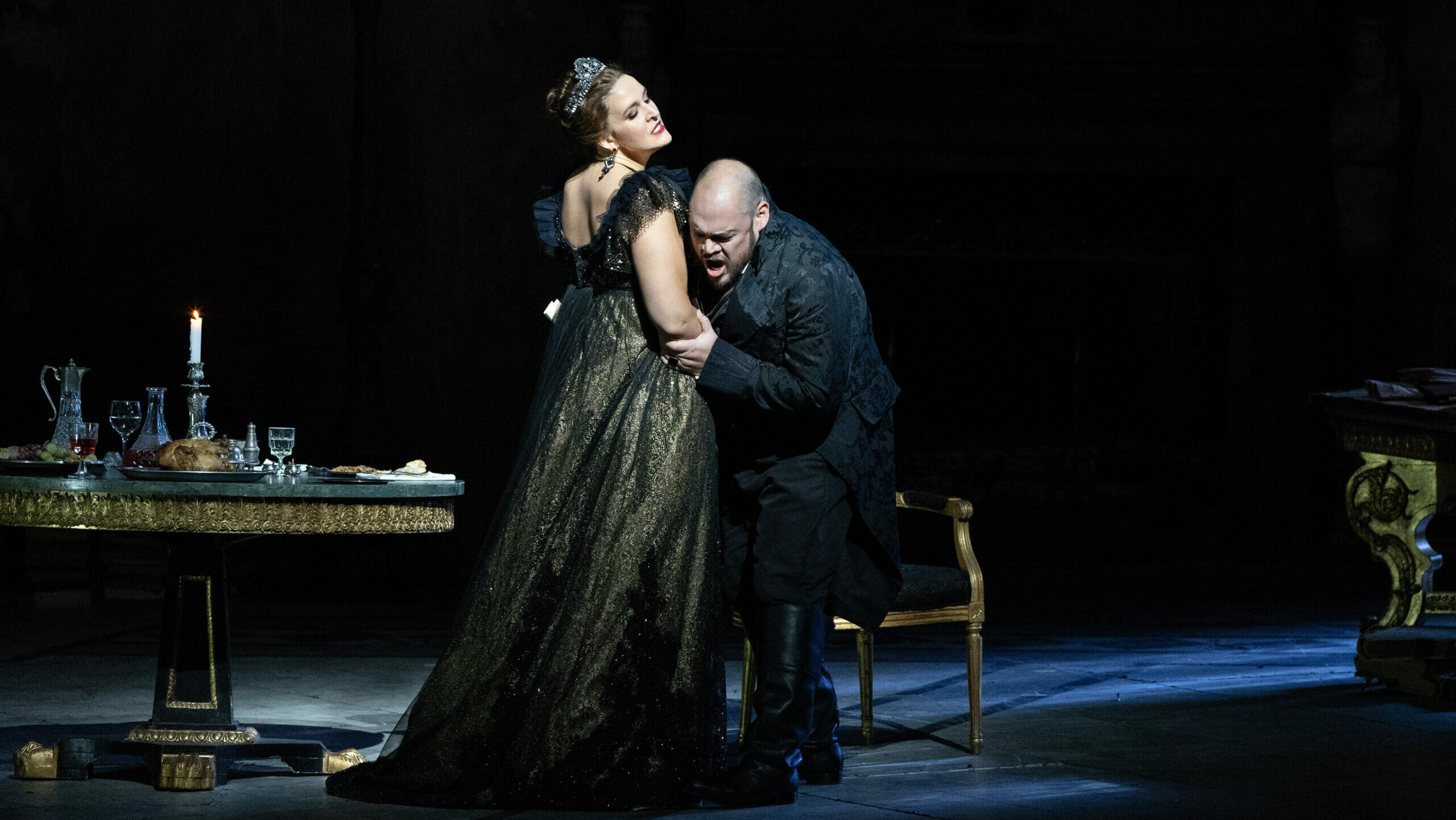


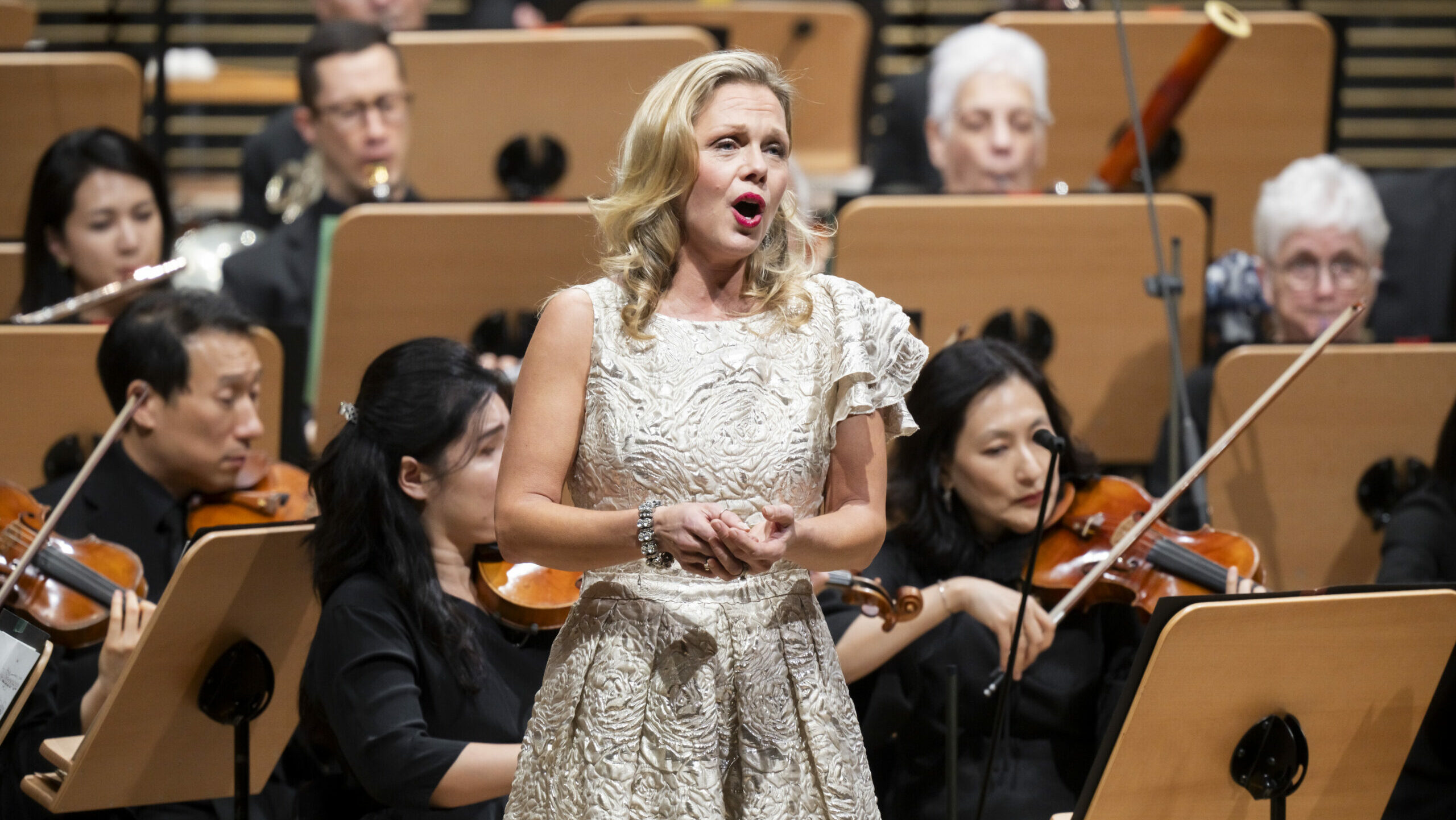
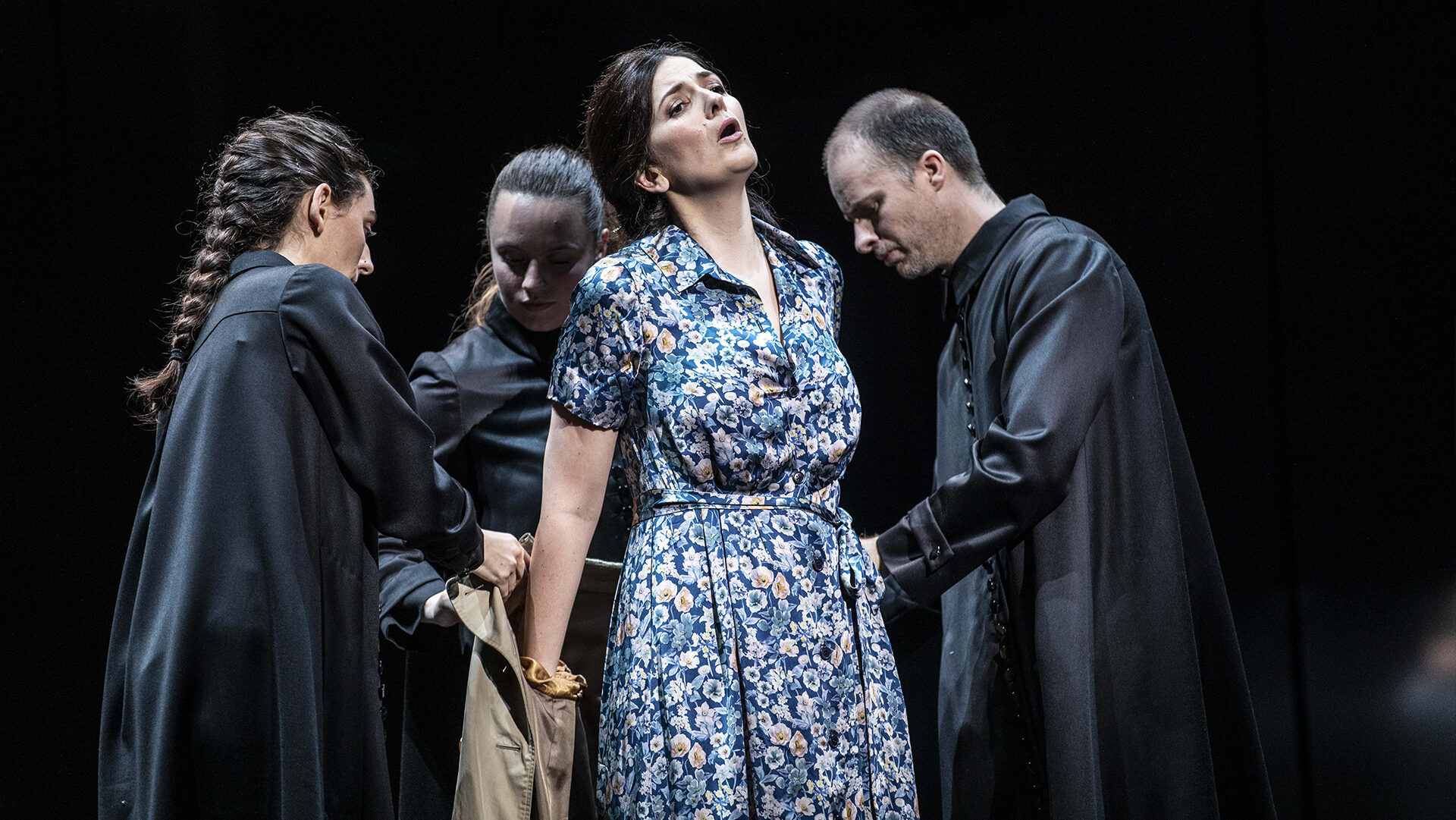
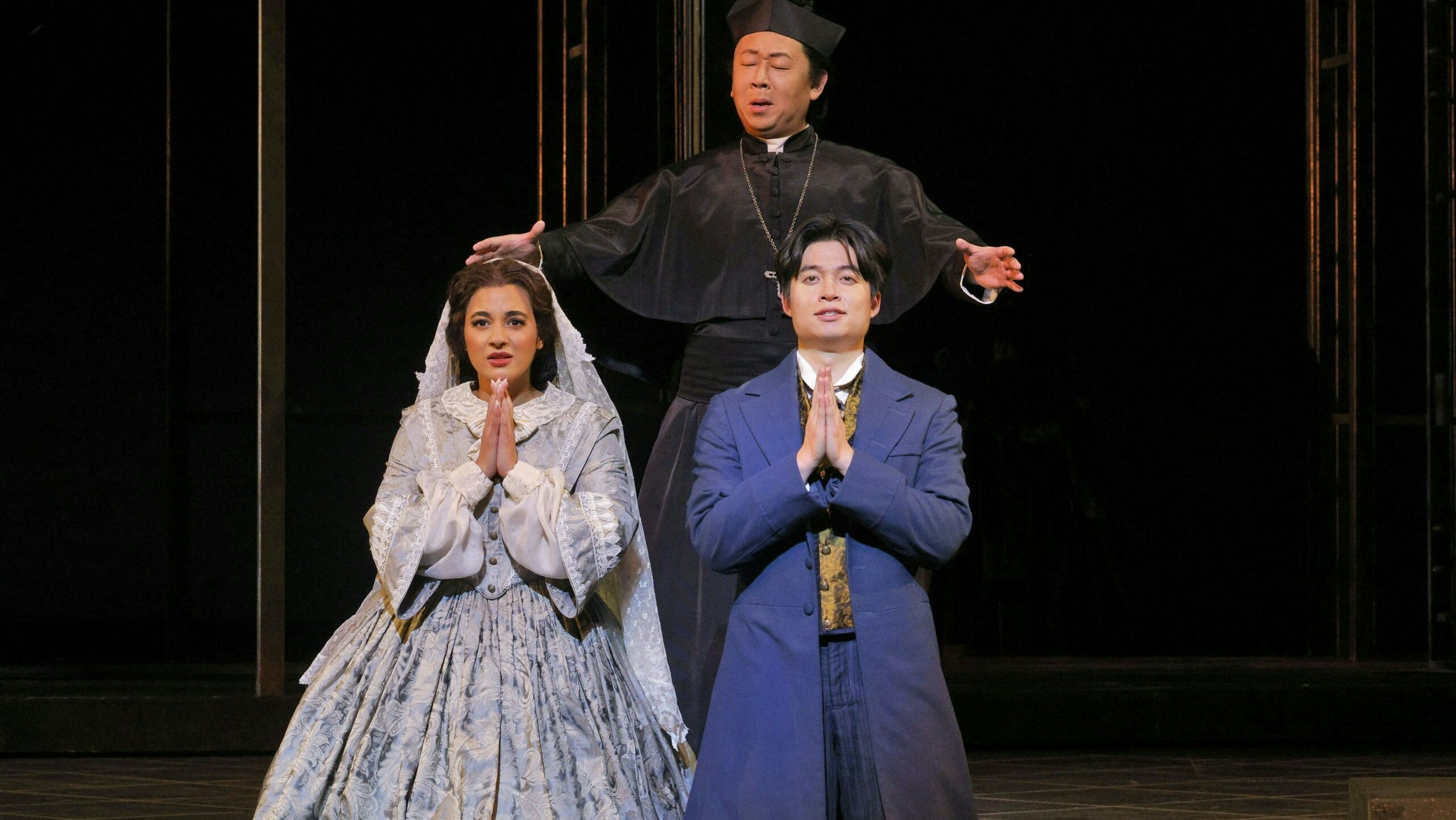
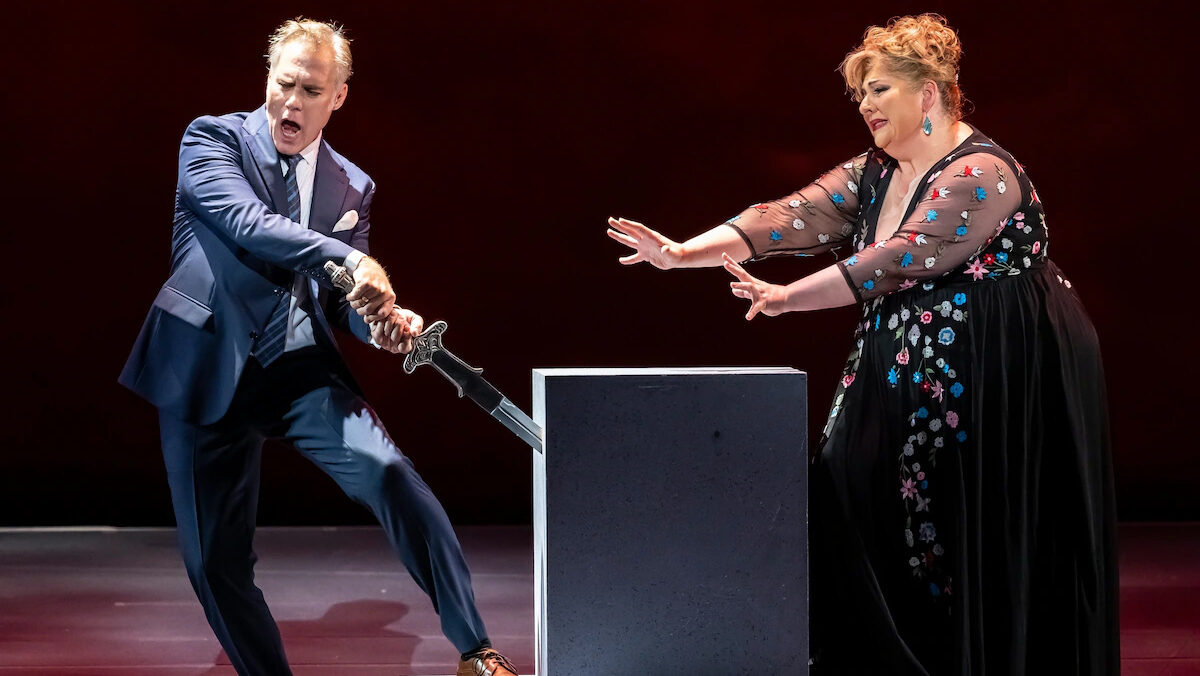
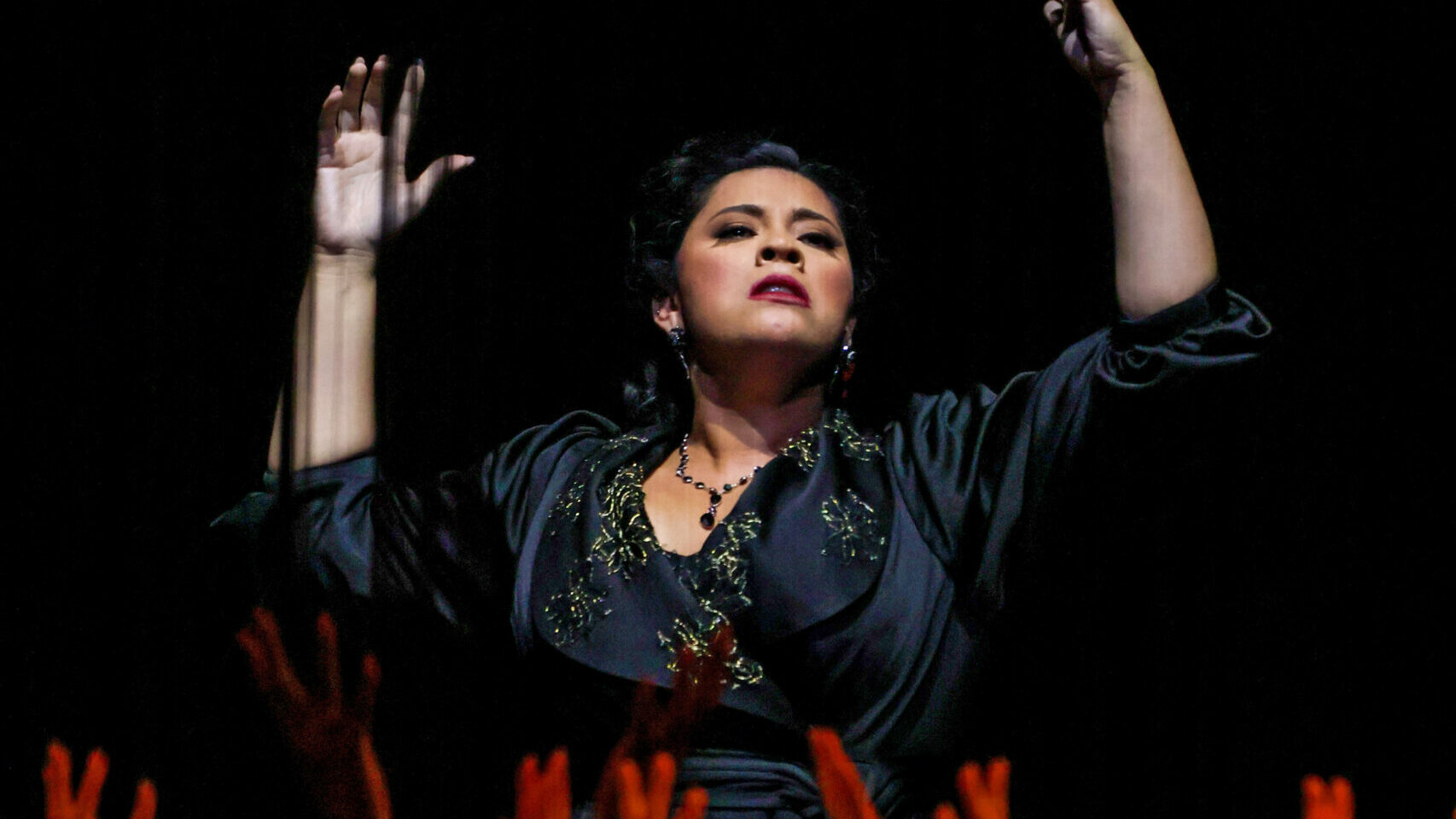
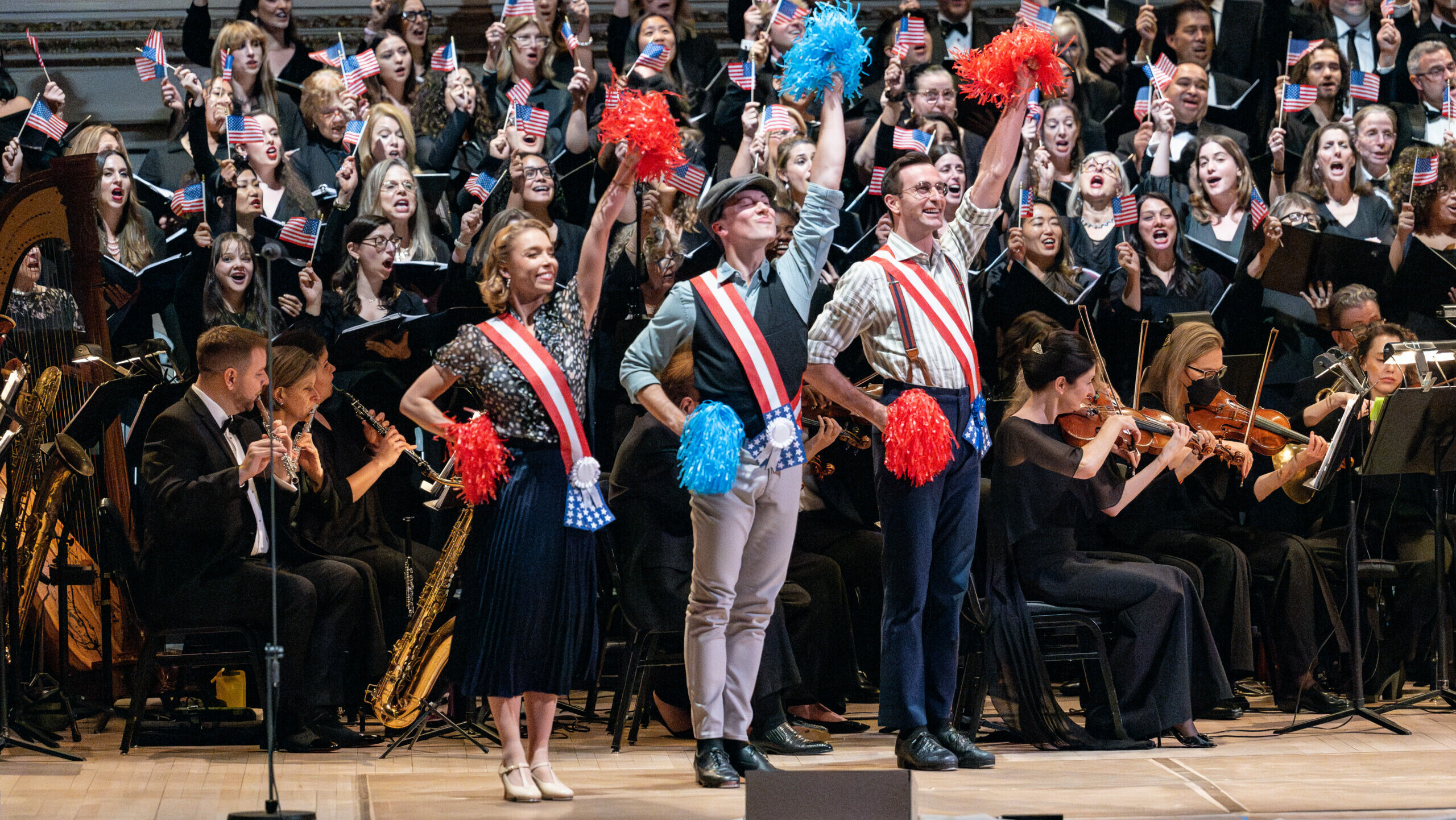
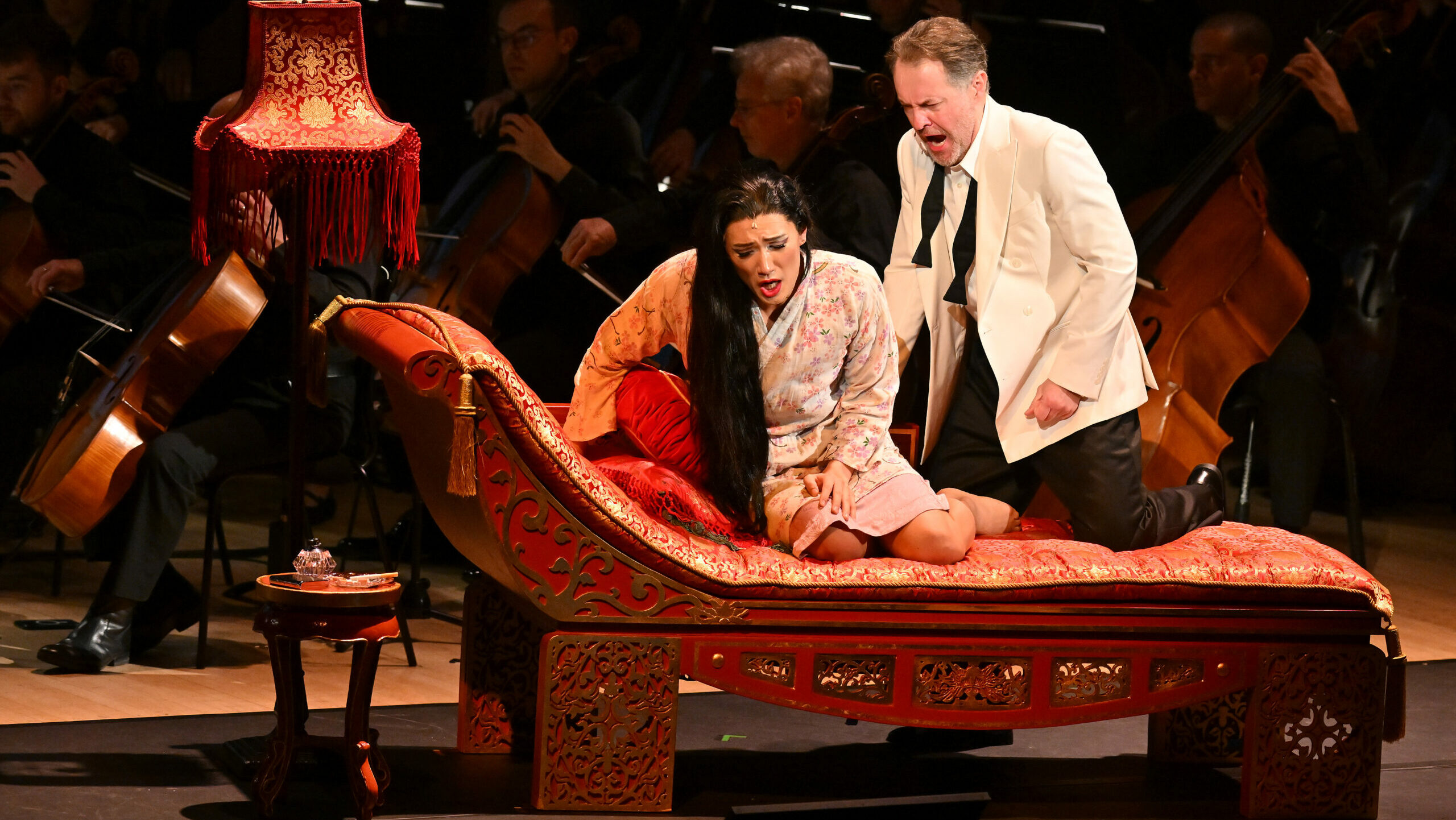
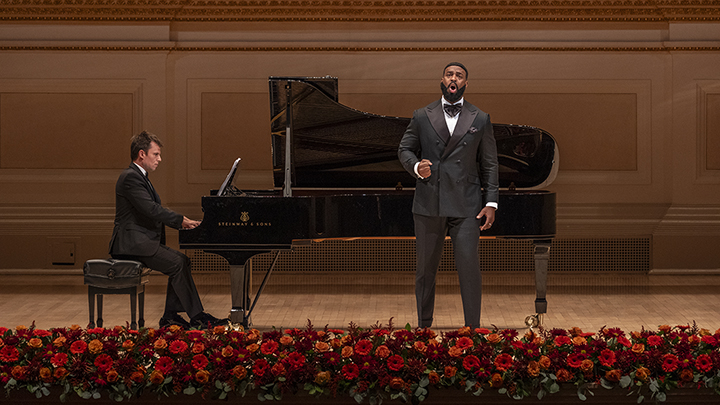
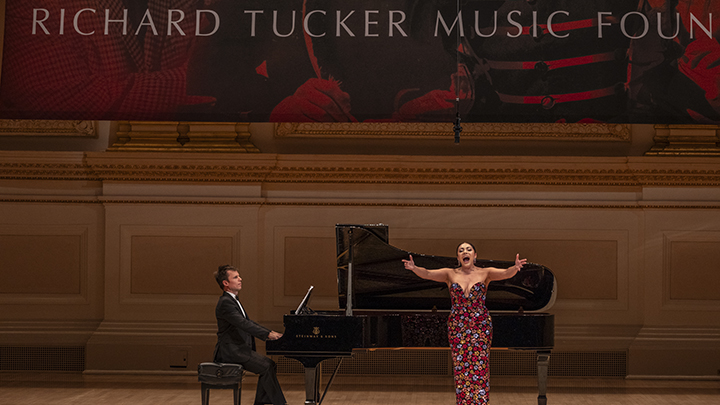
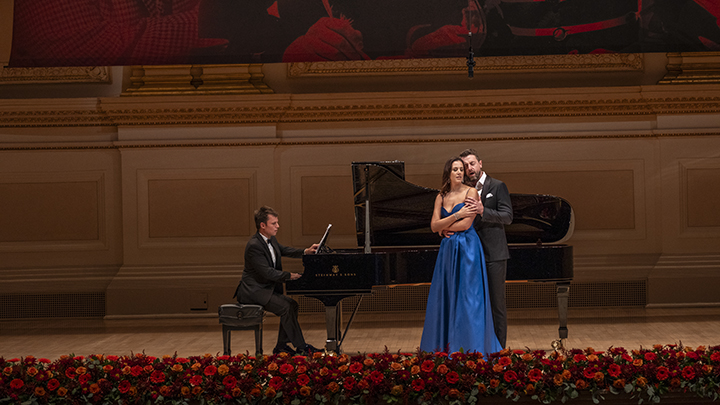






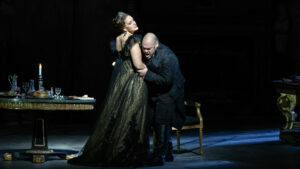
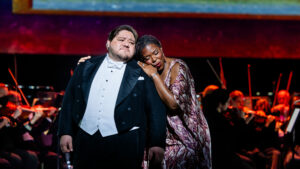



Comments